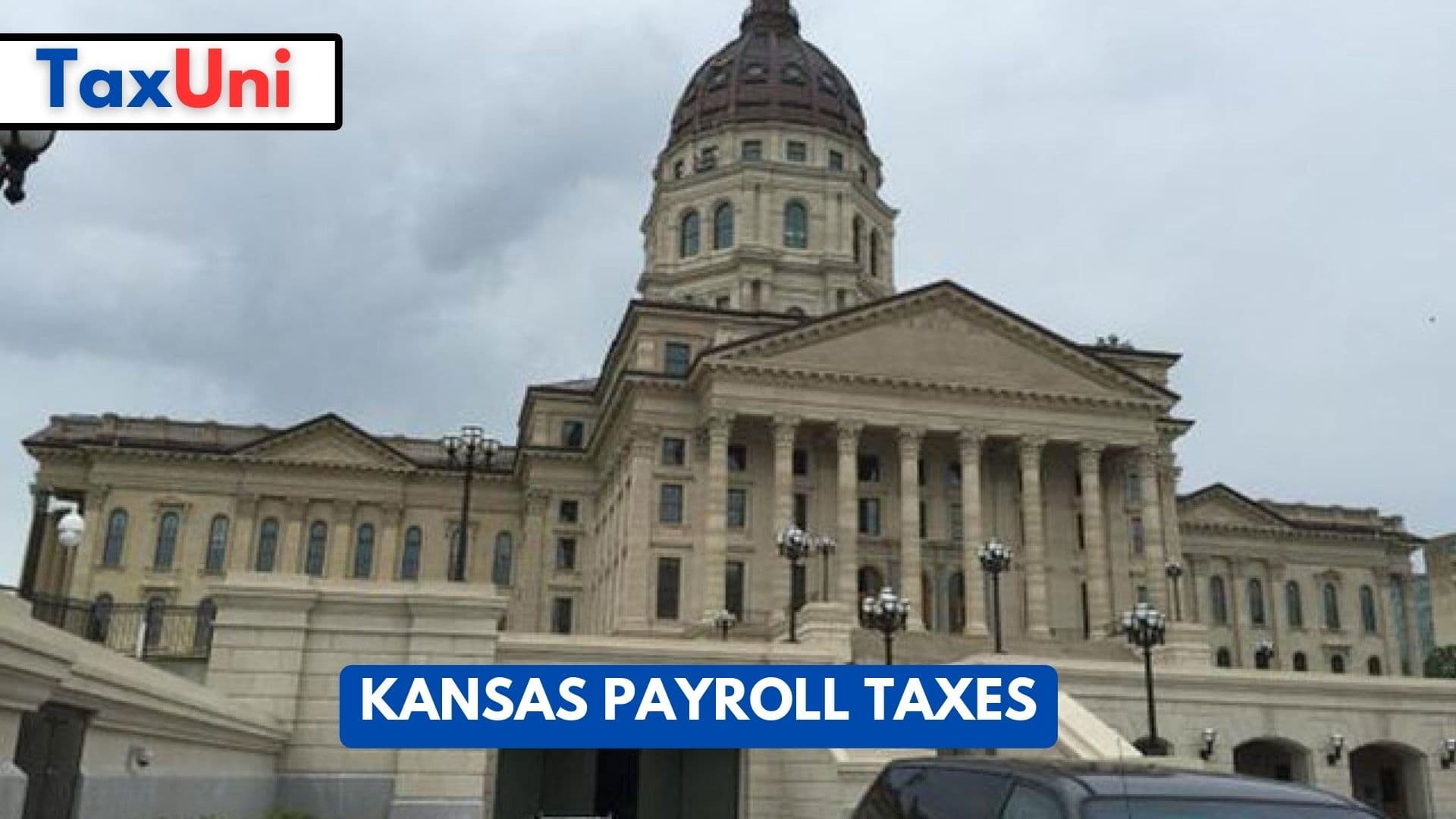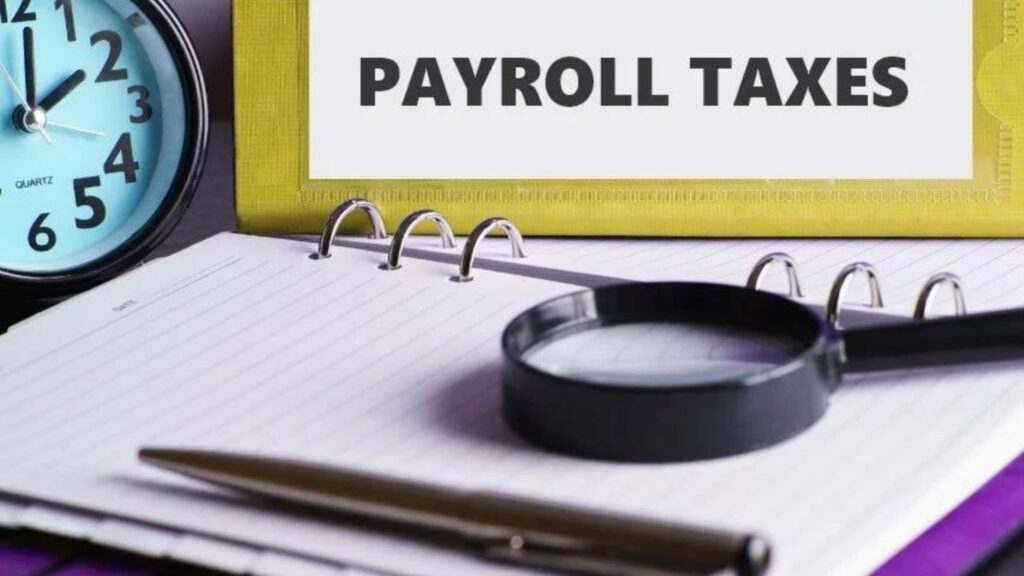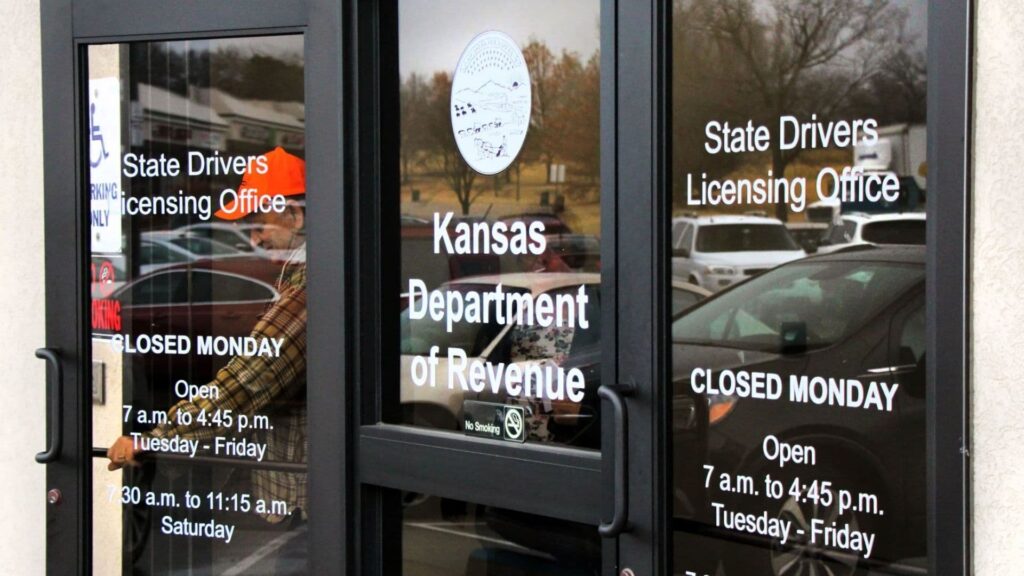Kansas Payroll Taxes
This article will guide you through the essential components of Kansas payroll taxes, from registration to filing deadlines and tax rates.

Contents
Managing payroll taxes is a critical responsibility for any business operating in Kansas. Employers must comply with both federal and state payroll tax laws, which require the accurate calculation, withholding, and remittance of taxes from employees’ wages. This includes Kansas state income tax withholding, unemployment insurance, and other federal payroll tax requirements. Understanding these obligations is essential to avoid penalties, ensure compliance, and manage your business’s payroll efficiently.
Federal Payroll Taxes
Before addressing Kansas-specific taxes, employers must fulfill their obligations to the federal government. The key federal payroll taxes include:
- Federal Income Tax Withholding: Employers are required to withhold federal income taxes from their employees’ paychecks based on the information provided on the W-4 form. The withholding amounts are determined by the IRS withholding tables.
- FICA (Federal Insurance Contributions Act) Taxes: This tax is made up of Social Security and Medicare taxes. Employers must withhold 6.2% for Social Security (up to the wage base limit) and 1.45% for Medicare (no wage base limit). Employers also contribute an equal amount to FICA.
- Federal Unemployment Tax Act (FUTA): FUTA taxes are paid solely by the employer and fund unemployment benefits at the federal level. Employers pay a 6% tax on the first $7,000 of each employee’s wages, though most can claim credits that reduce this rate to 0.6%.

Kansas State Payroll Taxes
In addition to federal taxes, employers in Kansas are responsible for collecting and remitting Kansas state payroll taxes, which include:
Kansas State Income Tax Withholding
Kansas employers must withhold state income tax from employees’ wages. The withholding amount is determined by the employee’s wages and the Kansas W-4 form they submit. Kansas operates on a graduated income tax system, with tax rates ranging from 3.10% to 5.70% depending on income levels.
To calculate the correct withholding amount, employers can refer to the Kansas Department of Revenue’s (KDOR) withholding tables, which provide the necessary guidance. Most payroll software also includes automatic calculations based on current tax rates and employee information.
Kansas Unemployment Insurance (UI)
Employers in Kansas are required to pay into the state’s Unemployment Insurance (UI) program. These taxes help fund unemployment benefits for workers who lose their jobs through no fault of their own. Unlike state income tax withholding, unemployment insurance is solely the responsibility of the employer.
- The UI tax rate for new employers is typically 2.7% of the first $14,000 in wages paid to each employee.
- For established employers, the rate is determined by the employer’s experience rating, which reflects the employer’s history of unemployment claims. The more claims, the higher the tax rate.
Employers must register with the Kansas Department of Labor (KDOL) to receive a UI account number and pay these taxes. Quarterly reporting of wages and contributions is required.

Registering for Kansas Payroll Taxes
Before withholding and remitting Kansas payroll taxes, employers need to register their business with the Kansas Department of Revenue (KDOR) and the Kansas Department of Labor (KDOL).
- To register for Kansas withholding tax, employers can use the Kansas Department of Revenue’s online portal. This will generate a withholding tax account number, which will be used to file and pay taxes.
- To register for Kansas unemployment insurance, employers must sign up with the Kansas Department of Labor through their K-BEN online system. This will generate a UI account number.
Both registrations are crucial for legal compliance and for reporting and paying taxes on time.
Filing and Paying Kansas Payroll Taxes
Kansas employers must regularly file payroll tax returns and remit withheld taxes to both the Kansas Department of Revenue and the Kansas Department of Labor.
- Income Tax Withholding: Depending on the size of the employer’s payroll, Kansas requires withholding taxes to be filed either monthly, quarterly, or annually:
- Monthly filers: For employers who withhold more than $200 in taxes per month.
- Quarterly filers: For employers who withhold between $80 and $200 per month.
- Annual filers: For employers who withhold less than $80 per month.
All Kansas withholding tax filings and payments can be made through the Kansas Department of Revenue’s online filing system.
- Unemployment Insurance Contributions: UI taxes are reported and paid quarterly through the Kansas Department of Labor’s K-BEN online portal. Employers must submit a quarterly wage report that lists the total payroll and calculates the tax due based on the employer’s specific tax rate.
Recordkeeping Requirements
Employers in Kansas are required to maintain accurate payroll tax records for at least four years. These records must include detailed information such as:
- Employee names and Social Security numbers.
- Dates and amounts of wages paid.
- Tax withholding and payment records.
- Copies of W-4 forms and other tax-related documents.
These records are critical in the event of an audit or tax dispute and help ensure that all tax obligations are properly met.
Failure to comply with Kansas payroll tax laws can result in significant penalties for employers. Late or inaccurate filing, underpayment of taxes, or failure to register properly can lead to fines, interest charges, and even audits. Employers should make every effort to stay on top of their tax obligations to avoid these issues.
- Late filings or payments can result in a penalty of 1% per month, up to a maximum of 24% of the unpaid tax.
- Interest on unpaid taxes accrues at the state-determined interest rate and can add up quickly if left unresolved.

Things to Know About Kansas Payroll Taxes
Local Payroll Taxes
Unlike some states, Kansas does not impose local payroll taxes. Employers only need to worry about state and federal payroll tax withholdings, which simplifies the overall process.
Minimum Wage Laws
Kansas follows the federal minimum wage, which is currently $7.25 per hour as of 2023. Employers must ensure that they comply with this wage rate when calculating employee pay. However, some employers may qualify for exemptions depending on the nature of the work and the size of the business.
Voluntary Contributions for UI
Kansas employers who want to lower their unemployment insurance rate can make voluntary contributions to the state’s unemployment trust fund. This additional payment can improve the employer’s experience rating, potentially reducing future UI tax rates.





